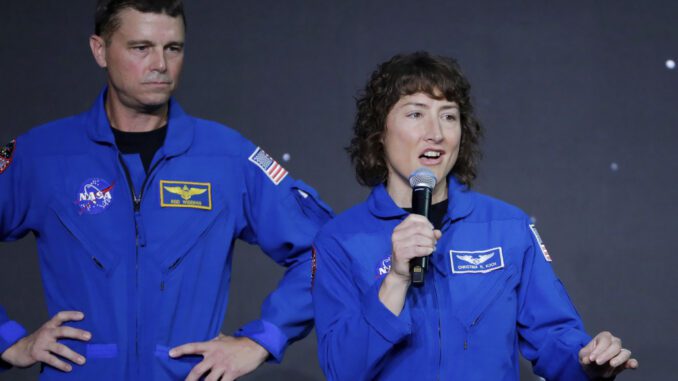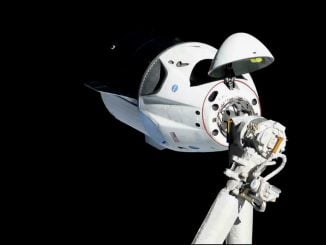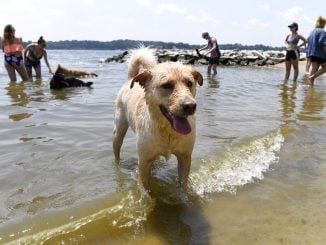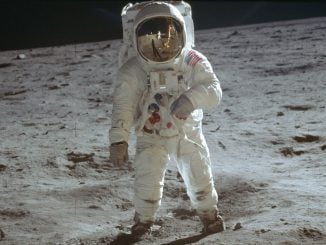
NASA named the four astronauts who will fly around the moon late next year, including the first woman and the first African American assigned to a lunar mission.
The first moon crew in 50 years — three Americans and one Canadian — was introduced during a ceremony in Houston, home to the nation’s astronauts as well as Mission Control.
“This is humanity’s crew,” said NASA Administrator Bill Nelson.
The four astronauts will be the first to fly NASA’s Orion capsule, launching atop a Space Launch System rocket from Kennedy Space Center no earlier than late 2024. They will not land or even go into lunar orbit, but rather fly around the moon and head straight back to Earth, a prelude to a lunar landing by two others a year later.
NC State graduate Christina Koch, who holds the world record for the longest spaceflight by a woman, is one of the four astronauts selected for the mission.
“Am I excited? Absolutely,” Koch said to cheers from the crowd of schoolchildren, politicians and others. “But my real question is: ‘Are you excited?'” she said to more cheers.
The Canadian Space Agency snagged a seat because of its contributions of big robotic arms on NASA’s space shuttles and the space station. One is also planned for the moon project.
During Apollo, NASA sent 24 astronauts to the moon from 1968 through 1972. Twelve of them landed. All were military-trained male test pilots except for Apollo 17’s Harrison Schmitt, a geologist who closed out that moonlanding era alongside the late Gene Cernan.
Provided this next 10-day moonshot goes well, NASA aims to land two astronauts on the moon by 2025 or so.
NASA picked from 41 active astronauts for its first Artemis crew. Canada had four candidates. Almost all of them took part in Monday’s ceremony at Johnson Space Center’s Ellington Field, a pep rally of sorts that ended with Wiseman leading the crowd in a chant.
Congratulations streamed in from retired astronauts, including Apollo 11’s Buzz Aldrin and Scott Kelly, the first American to spend close to a year in space. “Huge risks, huge commitment, eternal benefits for all. What a crew!” tweeted Chris Hadfield, the first Canadian commander of the space station a decade ago who performed David Bowie’s “Space Oddity” from orbit.



